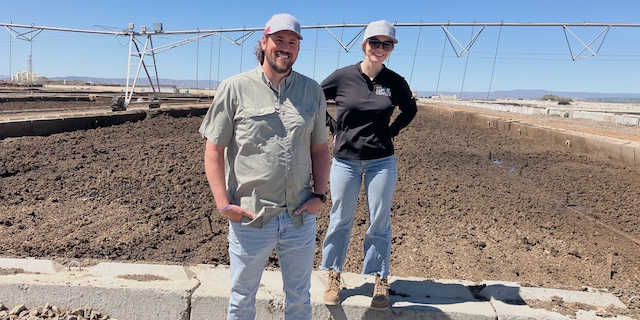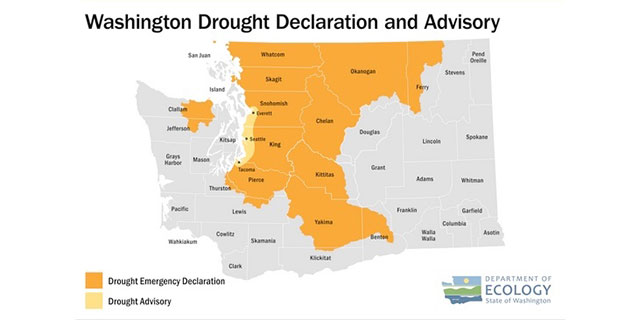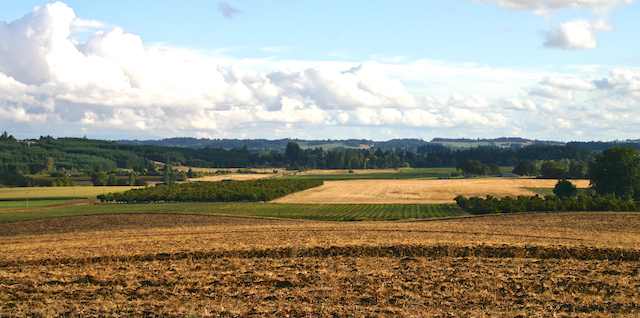Western Innovator: Irrigation manager confronts drought
Published 4:15 pm Wednesday, June 26, 2024

- “Our water right is secure. Our water supply is not,” Roza Irrigation District manager Scott Revell says.
SUNNYSIDE, Wash. — Roza Irrigation District manager Scott Revell said he has a great job, except during years when there is a drought. This year, the job is not great.
The district brings water to 72,000 acres in the Yakima River basin in Central Washington. Without water, the country would be rangeland. With water, the district yields cherries, apples, grapes, hops and other crops.
Roza water users this year will pay $202 an acre. The assessment maintains the 95-mile main canal and hundreds of miles of lateral canals but does not guarantee a drop of water.
Although the district has a 375,000 acre-foot water right, it’s subject to cutbacks during times of drought.
“Our water right is secure. Our water supply is not,” Revell said.
Roza began delivering water from U.S. Bureau of Reclamation reservoirs in the 1940s. The basin’s older irrigation districts with senior water rights get 100% of their water before Roza gets any.
This year, Roza farmers can expect less than half their full allotments, about the same amount as in 2015, the last severe drought.
Farmers will cope with the shortage all summer, hoping the weather helps — or at least doesn’t make things worse. “It can go south pretty fast if we get into one of those heat domes,” grape grower Jim Willard said.
The irrigation district already has battled this drought for months, applying lessons learned in previous droughts, especially the epic ones. “The 1977 drought still hangs over the irrigation district,” Revell said.
Drought preparation never stops, he said. No two droughts are alike, and no two days managing the district are the same. “It’s an awesome job. Not so awesome in a drought. But the years in between are fun.”
Background as planner
Revell, 54, has managed the 54-employee irrigation district since 2013. He graduated from Hanford High School in Richland and earned bachelor’s and master’s degrees at Washington State University.
An internship with the city of Richland launched him into a career in public administration and several top positions.
He was planning director for Hood River County in Oregon and Walla Walla County in Washington. He also worked for the city of Kennewick and the Kennewick Irrigation District.
Roza is the fifth-largest irrigation district in Washington and is one of the districts most vulnerable to drought. The district’s water supply largely comes from large amounts of snow melting into streams and reservoirs.
The snowpack was terrible in 2015 and the summer was hot. Roza farmers lost $75.78 million in production, the Washington State Department of Agriculture estimated.
Roza’s losses were 10% of all drought-related damages statewide, reflecting the district’s importance to Washington’s farm economy.
Revell warned Roza water users last November they might face another drought. Reservoirs were low, October was dry and El Nino portended a mild winter. “Bad omen, bad omen, bad omen,” Revell said.
The district kept about 800 water users up to date on drought prospects and preparations, while trying not to unduly alarm anyone, including bankers, he said.
“We want to confront the brutal facts, but we don’t want to be overly gloomy,” Revell said. “We have told the brutal facts as early as we could.”
Roza’s board of directors has authorized the district to start looking for water. The district ended up spending about $4 million to lease about 12,000 acre-feet, mostly from the Sunnyside Valley Irrigation District and the Selah-Moxee Irrigation District.
“We’d lease more if we could,” Revell said. “We got all the readily available water.”
The reclamation bureau started rationing water May 21 to Roza, as well as the Kittitas Reclamation District.
Roza immediately shut down its main canal for 10 days. Even with that shutdown, the irrigation season likely won’t go into October. The irrigation season usually ends Oct. 20.
In mid-June, the reclamation bureau predicted that by the time the irrigation season ends, Roza water users will have received 48% of their full allotments. Only a handful of years will have been worse.
Scott Revell
Scott Revell
Age: 54
Job: Roza Irrigation District manager in Sunnyside, Wash.
Education: Bachelor’s degree in history and master’s degree in public administration from Washington State University.
Family: Wife Kym, daughter Megan, 21, and son Michael, 16.






